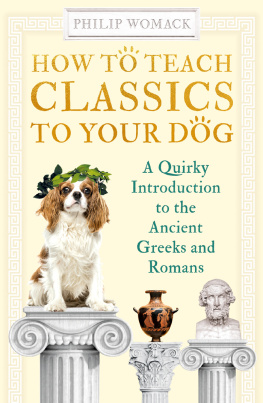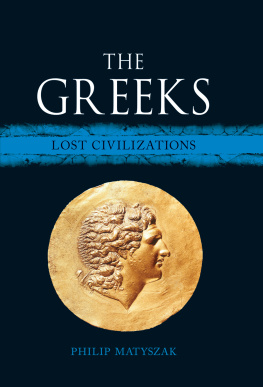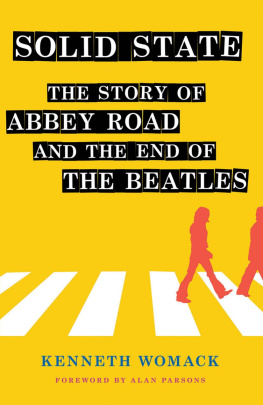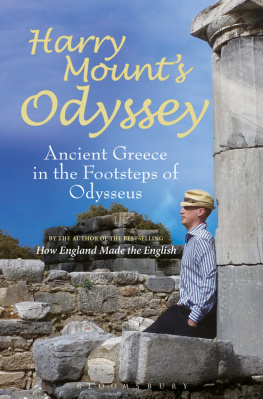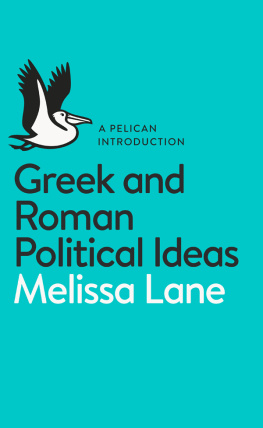
HOW TO TEACH CLASSICS TO YOUR DOG
Contents
This book is dedicated to Nicola Shulman: docta puella amicaque
discipulaque, with whom so many of these conversations began.
And also, to Una, optima canis.
Introduction
In the summer of 2011, Google, the search engine colossus, launched a social network, Google+, which threatened to rival Facebook.
Mark Zuckerberg, Facebooks CEO, took an aggressive position. This was a hostile incursion into his rightful territory. Facebook would have to resist. He flooded the campus of the company hed founded with inspirational posters.
Did they show memes from popular TV shows? Or grinning emojis? Did they display the famous Facebook thumb, pointing upwards?
Did they hell.
In displaying his imperial ambition, Marcus Zuckerbergus Libervultus selected a phrase that issued from the mouth of a Roman senator over 2,000 years ago: Carthago delenda est, topped by the sinister silhouette of a helmeted Roman soldier.
Carthage must be destroyed. This city was the great and ancient enemy of Rome. The statesman Cato thought it had grown too rich; it was menacing Rome from right across the Mediterranean Sea.
Cato ended every speech he made in the Senate with these words, whether they were relevant or not. Relentless, bold, militaristic: the tag perfectly captures Zuckerbergs overweening desire to crush all his competitors.
The Roman Empire may no longer exist, but excessive ambition always will. Empires come and go in different forms. Google+ vanished, crushed under the might of the Zuck and his myriad legions. Google delenda est!
Being a classicist can be a precarious business. Sometimes I feel like a soldier in the city of Troy, just after theyd hoisted in the wooden horse, feasted, fallen into a drunken stupor, and been roused by the clang of enemy metal. But they said it was a present! went the cry round the streets of Troy, as their palaces and houses burned around them.
Large, brutal forces are ranged against the classicist, which seem all-powerful. Our enemy believes in irrelevance.
How, they wonder, is it possible to understand what happened so long ago? What is even the point of trying to learn and understand languages that have been six feet under for centuries?
People often regard Classics with slight amusement, as they do your eccentric great-aunt Millicent, who still reads paper newspapers, writes with an ink fountain pen and worries about missing the post. They always ask me: but why be a classicist?
Latin is a dead language, as dead as dead can be: it killed off all the Romans, and now its killing me! As for Ancient Greek well, it doesnt even use the same alphabet, so whats the point of that? Its so obscure, nobodys even bothered to make up a disparaging jingle.
Latin and Greek are, of course, not dead. They have been bursting with life throughout the centuries. Imagine a river, with more than one mouth, and several tributaries, all flowing into the great sea of literature and culture. The texts and mythologies that form the study of Classics are as relevant now as they ever were.
As I prepare this book for publication, the comedians Steve Coogan and Rob Brydon are recreating the journey of Odysseus, for a TV show about male identity and friendship. The writer and hip-hop artist Akala recently investigated the same poem, travelling around the Mediterranean in search of its origins. He concluded that Homers oral culture wasnt far off todays rap battles. The Duke and Duchess of Sussex have named their charitable foundation Archewell, after the Greek word arche. They claim it means source of action; it does, but it means rule, too, hence the word monarchy and so on. Its a shame, then, that they didnt have a classicist on their staff, who could have told them that arche has a hard ch, and is pronounced ark-eh.
Prince Harry wasnt paying attention in his Greek classes. But the subject flourishes. In private and grammar schools, it has been a traditional plank of the system for generations, though sometimes the teaching hasnt changed in the last fifty years (I do not joke). Increasingly, the state sector is getting involved. Visit the website of Classics for All, a charity that provides funding for the teaching of Classics, and youll find videos of children across the country getting excited by conjugating verbs. Latin is the language of the future, as one of the teachers, from Blackpool, says. And she means it.
This libellus, or little book, will provide all you need for a general understanding of the subject. If you want to be able to tell your Odysseus from your Oedipus, then this book is for you. If you did a bit of Latin at school, then this book is for you. If you did Classics at university, and have forgotten everything you learned, then this book is for you. If you have an interest in literature, poetry, history, mythology or philosophy, then this book is for you.
If youre a sceptic who puts Latin on a par with wearing ruffs, singing madrigals and learning the lute, then give us a chance. After all, if the Emperor of the Internet divined something useful in this apparently dusty old subject, then you might as well.
The following chapters cover the essentials in the study of Classics. Theres an excellent Latin phrase to describe the topics: sine qua non. You wouldnt study it at all without touching on these points. The discussions take the form of conversations with my dog, Una, over the course of a few months, from the middle of August to the beginning of January.
We discuss the big as well as the small. Well see how mythology underpins literature and philosophy; well look at how the great epic poems that stand at the very beginning of civilisation developed, and what they mean. Well enquire into the workings of history; and well talk about love poems and tragedies.
On the human scale, youll find devoted inscriptions to pet dogs; youll encounter people whose job it is to fatten peacocks; youll meet crazed (or not) emperors; youll see transformations into dogs and wolves; and youll taste the vastness and complexity of the ancient world.
You can find terrifying battles, passionate loves and awe-inspiring turns of fortune, just as much as you can enjoy a joke about someone not pronouncing their Hs, or a pompous ex-slave who uses silver bottles to pee in.
No other subject offers such breadth; no other subject has been engaged with so deeply by so many people across so many different societies and countries over the centuries.
A Roman lady in the early Empire would be able to have a meaningful discussion with a modern teenager about the letters of Cicero or the poems of Sappho. Its the closest thing we have to time travel. To ignore Classics, to suppress its study, would be like amputating a limb from the intellectual, imaginative and spiritual body of the world.
Sometimes antiquity seems so tantalisingly close that you could step out of the front door and into the forum at Rome, the swish of togas and the shouts of orators almost audible; sometimes it appears impossibly distant.
There is always a continuum: we are living in a classical world, and I am a C-la-ssical girl, as Madonna might have sung; her own name, of course, being a contraction of the Latin Mea Domina: My Lady.
Classics has been my companion for nearly all my working life. I began as a private tutor in London in 2003, almost as soon as I had left Oxford University, where I read Classics and English at Oriel College, and now my pupils are scattered all over the globe.
Next page
